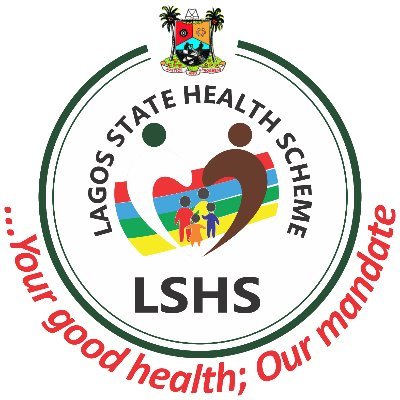Health
NAFDAC, NHIA collaborate to assist local manufacturers produce 33 drugs
By Matthew Denis
The National Agency for Food and Drug law enforcement Control (NAFDAC) and National Health Insurance Authority (NHIA) are in synergy to assist 12 selected local manufacturers to produce 33 drugs in large quantities and quality for citizens consumption.
The Director General of NAFDAC, Prof. Mojisola Christiana Adeyeye made disclosure during a joint briefing to Newsmen in Abuja on Thursday.
The DG said “Under the initiative, 12 Pharmaceutical companies will be branding 33 products for the health insurance ecosystem in the first phase.
“Already, NHIA has chosen seven states (Delta, Enugu, Gombe, Jigawa, Niger, Osun and Sokoto states) and the Federal Capital Territory (FCT) for the pilot phase of this initiative.
”The initiative is also geared towards strengthening Local Pharmaceutical manufacturers, which will ultimately guarantee medicines security. This drive to guarantee medicines security has been a deliberate and intentional effort by NAFDAC in the past five years and continues to be on the front burner to ensure that pharmaceutical manufacturing facilities are fit for purpose. This will help to reduce the proliferation of substandard and falsified medical products”
Prof. Adeyeye stressed that the categories of drugs involved will start from simple to complex, which will be used to address prevailing health conditions in Nigeria, such as malaria, upper respiratory tract infections, childhood illnesses and drugs being used by pregnant women.
“As mentioned earlier, every drug to be manufactured will be certified and approved by the National Agency for Food and Drug Administration and Control (NAFDAC)- in terms of quality, safety and efficacy.
“The medicines will be tested in the WHO-Prequalified NAFDAC Laboratory. Also, as part of its Post Marketing Surveillance activities, NAFDAC will continue monitoring to ensure that these branded medicines are used exclusively in the nation’s health care facilities. They are not to be found on the shelves for sale.
According to her the branding of NHIA medicines and other health products was introduced as a way to help eradicate out-of-stock syndrome, as well as ensure quality of its medicines.
“The 33 drugs would be branded with NHIA inscription under the National Health Insurance Authority. NAFDAC, through the Directorate of Registration and Regulatory Affairs will also ensure that appropriate and adequate labelling of the medicines are met in line with the Agency’s labelling requirements and in accordance with NHIA guidelines.”
NAFDAC boss summited that the agency will continue to collaborate with NHIA to ensure that the terms spelt out in Executive Order 3(EO3) will to be implemented to enable the attainment of Universal Health Coverage as specified in the National Drug Policy.
She said “as a critical stakeholder in the health sector, is mandated to regulate and control the importation, exportation, manufacture, advertisement, distribution, sale, and use of food, drugs, cosmetics, medical devices, packaged water, detergents and chemicals. (Regulated products).
“NAFDAC has collaborated and continues to collaborate with NHIA to ensure a sustainable access to affordable and acceptable quality medicines for our citizens.”
According to her, the Executive Order 3 (EO3) on support for local content in public procurement by the Federal government requires that All MDAs shall grant preference to local manufacturers of goods and service providers in their procurement of goods and services.
”It was based on this collaboration that NAFDAC and in line with Executive Order 3 (EO3), along NHIA worked with Local Pharmaceutical Manufacturers whose manufacturing facilities have been approved by the agency as meeting Good Manufacturing practice (GMP) requirements for the procurement of needed medicines.
“These manufacturing companies have also had their products registered by NAFDAC. This means that all the attributes of quality, safety and efficacy pertaining to these products have been duly assured by NAFDAC.
“NAFDAC has in the past five years developed a GMP Roadmap which continuously assures that pharmaceutical manufacturers in Nigeria remain compliant with global best practices. The GMP roadmap was designed to guide and help local manufacturers upgrade their facilities and procedures in line with current good manufacturing practice requirements. This initiative has enabled the Agency establish a baseline for monitoring compliance.”
On his part, the Director General of TheNational Health Insurance Authority (NHIA), Prof. Muhammad Sambo has revealed that they have signed a Memorandum of Understanding (MoU) with Pharmaceutical Companies and Drugs Management Organisations (DMOs) for production of 33 different drugs to address the perennial problem of out-of-stock syndrome in the nation’s health facilities.
He stated that they are partnering NAFDAC since the sole responsibility of issuing licenses and approving pharmaceutical companies on drugs production.
The DG noted that they have gotten NAFDAC approval which the Authority will meet with manufacturers to conclude on paperwork for the commencement of the pilot phase production of the 33 drugs.
Health
LASHMA begins regulatory compliance of health facilities


Healthcare facilities under the Lagos State Health Scheme (LSHS) will be receiving visitors from the Lagos State Health Management Agency (LASHMA) as the agency begins compliance visits.
The Permanent Secretary, LASHMA, Dr. Emmanuella Zamba, while flagging off the Quarter two facility compliance visit said the move is to ensure quality healthcare and customer satisfaction by all its Enrollees.
Commending the Healthcare Providers which have been outstanding in their service delivery to ILERA EKO Enrollees, she noted that LASHMA has also received some negative feedback from the Enrollees about the way that they have been treated by Providers. Therefore, the Agency cannot fold its arms and allow its Enrollees to continue to be disenfranchised by the Providers.
Dr. Zamba said, “The Agency is constantly up on a complaint that follows a particular trend before we act.”
She added that the negative complaints received from Enrollees included drug unavailability, payment for covered services by the Enrollees, bad attitude and rudeness from some of the hospital personnel.
The Permanent Secretary said that during the visits, any hospital that has a high number of complaints, will be given a Letter of warning and if such complaints continue without being checked, LASHMA, will not hesitate to sanction the Hospital in accordance with the provisions of the Lagos State Health Scheme (LSHS) Law.
She advised Providers not to hesitate to also report to the Agency any Enrollee who is not of good conduct when visiting the Hospital.
Dr. Zamba urged ILERA EKO Healthcare Providers to ensure that they capture all utilisation by the Enrollees in their respective Hospitals because data collection is key in Health insurance.
The Permanent Secretary said that the State Government would continue to support the Healthcare facilities in terms of training and capacity building to ensure the delivery of quality service to its Enrollees.
She appealed to Healthcare Providers in the State who are not yet empanelled under the Lagos State Health Scheme to do so immediately so that together, the State Government can attain Universal Health Coverage (UHC).
Public and private hospitals visited so far included St. Raphael Hospital, Ikorodu, Ita Elewa Primary Healthcare Centre (PHC), Isolo General Hospital, Shomolu General Hospital, R-Jolad Hospital, Bariga, Epe General Hospital, Epe and Akoka Primary Healthcare Centre, Bee-Hees Hospital, Akowonjo, Orile Agege GH, Ifako Ijaiye GH, Epe GH and Badagry PHC, Siloan Medical Centre, Ejigbo.
Health
Outbreak: Zamfara Govt. confirms 4 deaths, 177 cases


The Zamfara Commissioner for Health, Dr Aisha Anka has confirmed the outbreak of unknown illness in the state which recorded four deaths and 177 cases so far.
Anka confirmed this in a statement issued in Gusau on Friday by the Information Officer of the ministry, Malam Bello Ibrahim.
According to the commissioner, the disease is characterized by abdominal distension, accumulation of fluid in the abdomen, enlarge liver, enlarge spleen, fever and general body weakness.
“The illness is found in Maradun, Shinkafi and Gusau local government areas in the state.
“Children are mostly affected and the cases are associated with water consumptions.
“So far, four deaths have been recorded, 177 cases were detected,” Anka said.
“The incident has been reported to the National Centre for Disease Control (NCDC), partners and all other relevant stakeholders.
“The ministry of health is currently on the emergency response phase to identify the illnesses and causes.
“Various biological human and animal samples, soil samples, water samples, agricultural and foodstuff samples have been taken to Lagos and Abuja laboratories for analysis.
“The ministry will continue to update the general public and all relevant stakeholders and partners on any update about the outbreak,”she added. (
Health
Assembly passes Kano Pre-Marital Health Screening Bill


Kano State House of Assembly has passed a bill for a law to compel intending couples to undergo HIV, hepatitis and sickle cell anaemia screening before marriage.
The passage followed deliberations in the Committee of the Whole House during plenary session,
presided over by the Speaker, Ismail Falgore on Monday in Kano.
After deliberations, the lawmakers approved the 3rd reading of the bill, read by the Deputy Clerk, Alhaji Nasiru Magaji.
Shortly after passage of the bill, the Majority Leader of the house, Lawan Hussein (NNPP-Dala), stated that “any person
intending to marry shall first submit self for medical examinations.”
He said the bill was considered and passed after the 3rd reading, following various legislative processes.
The leader further said that the bill was passed because the state had been battling with different health issues, including
HIV because people go into marriages without medical screening.
He said that the bill, if signed into law, would save many lives and curb the spread of life-threatening diseases.
“The bill will safeguard the health of citizens by institutionalising pre-marital testing to check the spread of diseases
like hepatitis, HIV and sickle cell anaemia,” he added.
-
Finance4 months ago
Court orders Sen. Victor Umeh to repay N136m bank debt to AMCON
-



 Abuja Update3 months ago
Abuja Update3 months agoUNDP, FG partnership needed to achieve inclusion, equity- Minister
-
Abuja Update2 months ago
Banks drive stock market performance with N147bn gain
-
capital market2 years ago
Rt.briscoe, FBNH, Others halts negative performance of stock market
-
Submission Guidelines5 months ago
CALL FOR SUBMISSIONS: POETRY COLUMN-NND
-



 Health1 month ago
Health1 month agoCapacity training will reduce migration of health workers- NPHCDA
-



 Business4 weeks ago
Business4 weeks agoTingo Group unveils Tingo Electric, Tingo Cola drink at Lagos launch
-
News5 months ago
Oil thieves sponsoring malicious media campaign against Navy – Spokesman














